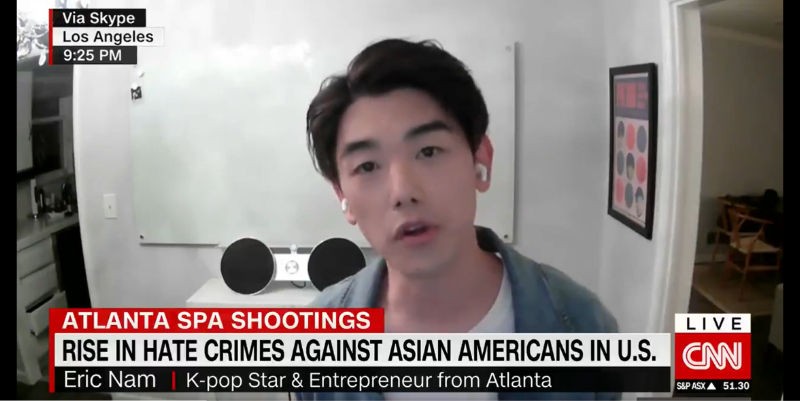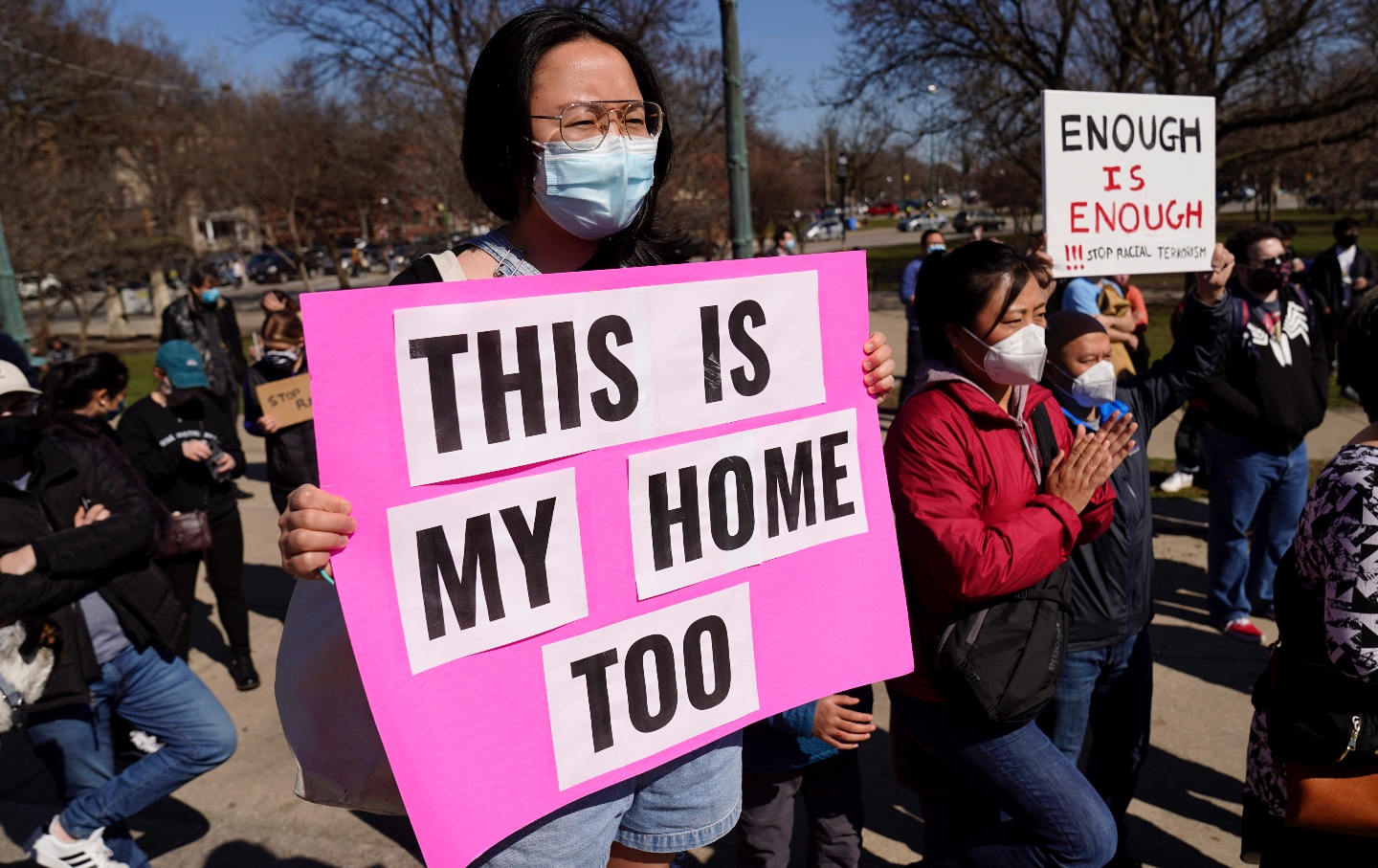Racially motivated assaults and hate crimes are seemingly on the rise, creating a lot of anxiety in societies around the world. The problem has been exacerbated with the advent of Covid-19, and later the death of a black man named George Floyd at the hands of police in the United States. This action triggered riots across the country as one more black person was added to the long list of unjustified deaths at the hands of American law enforcement. Korean netizens were reminded of the racial discrimination they suffered from and viewed the movement with critical eyes.
Last February, it was belatedly reported that Angelo Quinto, a Filipino-American in his 30s, died in December last year in Antioch, California, in the hands of American police. Quinto's family and lawyers held a late press conference on February 18 to bring light to the case. Koreans believe that the reason it took two months to highlight this controversial incident was because the victim was Asian.
Mr. Quinto, lived in Colorado and was suffering from depression and paranoia. On December 23rd, 2020, when he began demonstrating excited and aggressive behavior, his sister called the police because she had to protect her family. The family said after the police arrived, he was noticeable calmer and his mother even hugged him. Despite his improved mood, the police attempted to subdue him by holding a knee on the back of his neck for 5 minutes, killing him in the process. Even though Mr. Quinto begged them to stop, the police did not let up on their deadly submission hold. The officers were not wearing bodycams, so the only evidence is a video taken by the victim’s mother late into the incident. The family of the deceased strongly criticized the US police, calling the hold that killed him the ‘George Floyd Technique’.
 |
|
▲ Left: Angelo Quinto with his dog before the incident. Right: Angelo Quinto became unconscious after the police suppressed him with 'George Floyd Technique.' (Photos from Hankookilbo and Pete Earley) |
This incident exemplifies the violence that Asian-Americans face. Furthermore, there has been little change in the attitude of the US police since the George Floyd incident. Xenophobia and racial discrimination are the main reasons that these detrimental law enforcement attitudes have become widespread. The Black Lives Matter movement in 2020 is widely regarded as a major player in reforming the US system of racism. Nevertheless, racist behavior has not yet been eradicated. It is a sad reality that to resolve the anti-Asian violence situation, we have to rely on judicial institutions and laws that have historically targeted black and mixed-race communities.
Another recent racism controversy towards Asians deals with a high school teacher in Sacramento, California, in the United States who used a slant-eyed gesture during her online class to instruct students about discrimination. Miley Cyrus in 2009 and Yuli Gurriel, a Starbucks employee in 2017 both had to make official apologies after using this gesture, too. The ‘slant-eyed’ gesture has its roots in the racist stereotypes created in the late 19th century in the West. It was around the time when anti-Asian laws such as the Chinese Exclusion Act began to emerge in 1882 with the slogan of “Yellow Peril.” It cruelly targeted and threatened Asian immigrants. Unfortunately, the gesture has persisted for more than 140 years. In response to the incident, Sacramento city councilman Mai Vang said, “Perpetuating racist stereotypes of Asian Americans is harmful under any circumstances, but they are particularly egregious at a time when anti-Asian racism and violence is at an all-time high.” California Senator Richard Pan also expressed his disappointment in the issue, saying that the gesture is not unfamiliar to many Asians as they have seen it repeatedly over their lifespan. According to a study by Katz and Braly, the persistence of stereotypes occurs in the process of socio-cultural transmission. Some students of Ms. Burkett mentioned that she only used the gesture incidentally while lecturing on racism. But to pay any regard to social problems and the problem of discrimination, she should not have used the existing negative stereotypes directly to educate her students. It only perpetuates the transmission of this negative gesture.
A marked rise in anti-Asian hate crimes is on-going right now. About 4,000 hate crimes have occurred in the US over the past year, with the advent of Covid-19, according to a report by Asian Americans and Pacific Islanders (AAPI). March 2021, a mass shooting of six Asian women including four Koreans in Atlanta jolted a community already on edge. Police confirmed attacks are surging, yet they are still debating whether to designate the shooting as a hate crime. One problem with the coverage of the issue is the fact that there is poor data collection and low reporting rates. Many believe that the data released by police and federal agencies is just a fraction of the number of actual occurrence, and glitches in hate-crime reporting have led organizations and activists to take it upon themselves to assemble data on their own.
Korean singer-songwriter Eric Nam, has stated in TIME Magazine that “the calls for help and the warning signs from our community have felt ignored—as if the stories were about people living on the other side of the world, not about your neighbors in America." He used the expression of ‘perpetual foreigners’ to present the reality he feels as an Asian-American. We are “are invited but not fully integrated, or just largely ignored under the guise of being “O.K.” in culture and politics.” He was interviewed on CNN and strongly insisted that AAPIs have been excluded, interned, vilified, emasculated, fetishized, and murdered.
 |
| ▲ Eric Nam is having an interview with CNN about his article on the hate crime that happened in Atlanta. (Photo from SBS News) |
Unfortunately, the existing institutional solution to these discriminative problems does not seem very effective. In many countries around the world, racism is legally taboo, and countries are trying to prevent it from happening. In America, discrimination for any reason based on race, color, religion, sex, or national origin is illegal according to the 1964 Civil Rights Act. A lot of people hoped they would see an end to racism long before today, but this wish has been overshadowed by the countless number of hate crimes still emerging. More importantly, sometimes policies designed to shield minority groups from discrimination become another form of prejudice causing considerable social conflicts between races. Affirmative Action programs were designed to ensure equality during the college entrance system. But now they are being criticized for limiting the opportunities for Blacks and Hispanics to receive an advanced education as it inadvertently prioritizes Asians getting into colleges. And it formed higher standards for entering the colleges among Asians and ended up making a competitive atmosphere.
It seems racial discrimination is unending. The problem some believe is in how the human mind works. It is all about grouping. We all have dispositions to categorize people into in and out-groups. The extent to which we could recognize and relate to groups affects our tendency to divide and classify them. This habit makes it easier for us to stereotype people. Stereotypes are just an inference that one gets by assigning a person to a particular category or a group. People who think based on stereotypes tend to evaluate most of the group members with only a few characteristics that one person might have. And this could cause severe dilemmas by misunderstanding others.
 |
| ▲ A woman is holding a sign as she attends a rally protesting anti-Asian bigotry for Atlanta shooting. (Photo from The Nation) |
An American psychologist, Gordon Allport, added his opinion to the ‘Contact Hypothesis’ which suggested that intergroup contact can reduce prejudice and stereotypes between majority and minority group members. He says, to develop meaningful relationships between groups, you should maintain sufficient frequency, duration, and proximity with others. If we build ties with as many races and many fields as possible, we can gradually reduce these stereotypical approaches views of others. At the same time, it is necessary to make efforts to expand your in-group, since it means you have more people that you treat favorably.
The antidote for racism is quite within us. Victims such as Mr. Quinto and those in the Atlanta massacre showed us how rampant the problems of discrimination are and how often they are neglected. Their recent press coverage is offering us a chance to take these troubles seriously and take actions to them. Asians in the United States are still left behind and considered outsiders in their communities. Their voices are not being heard but ignored. Recent events have forced many of them to gather to protest the hate crimes that afflict them. We must realize that the racist remarks and actions we experience from others are not the actions of the group as a whole but of lost individuals who need to educate themselves to reject their ignorance about others. Even though society does not offer much help, we must voice our rights and actively seek and change what is wrong inside us.
박지안, 정예지, 류시은 dankookherald@gmail.com

 Vote for the Campus Brand Naming!
Vote for the Campus Brand Naming!

![[Campus Magnifier] Let's Surf the Library!](/news/thumbnail/202404/12496_1765_4143_v150.jpg)




